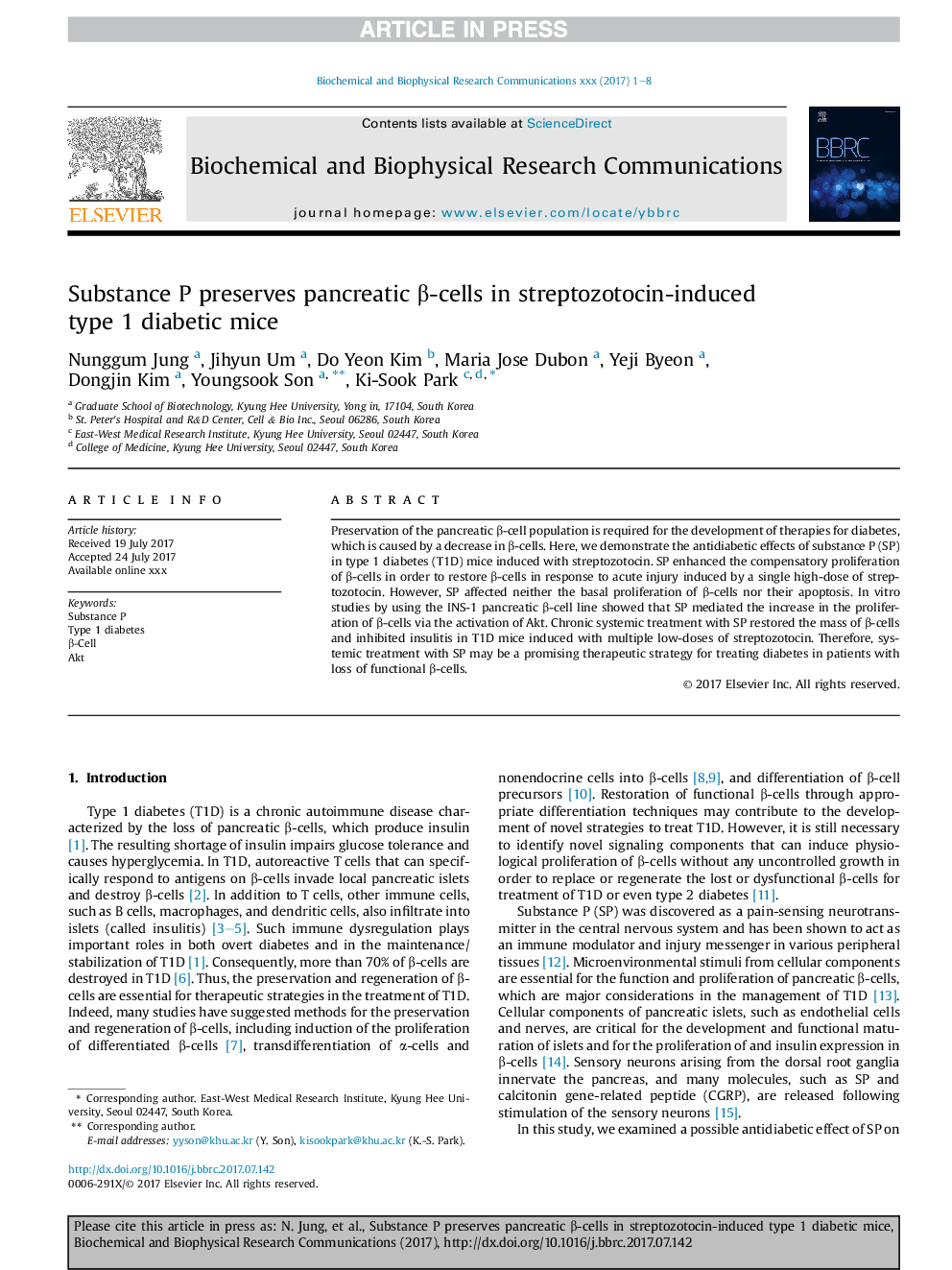| Article ID | Journal | Published Year | Pages | File Type |
|---|---|---|---|---|
| 5504759 | Biochemical and Biophysical Research Communications | 2017 | 8 Pages |
Abstract
Preservation of the pancreatic β-cell population is required for the development of therapies for diabetes, which is caused by a decrease in β-cells. Here, we demonstrate the antidiabetic effects of substance P (SP) in type 1 diabetes (T1D) mice induced with streptozotocin. SP enhanced the compensatory proliferation of β-cells in order to restore β-cells in response to acute injury induced by a single high-dose of streptozotocin. However, SP affected neither the basal proliferation of β-cells nor their apoptosis. In vitro studies by using the INS-1 pancreatic β-cell line showed that SP mediated the increase in the proliferation of β-cells via the activation of Akt. Chronic systemic treatment with SP restored the mass of β-cells and inhibited insulitis in T1D mice induced with multiple low-doses of streptozotocin. Therefore, systemic treatment with SP may be a promising therapeutic strategy for treating diabetes in patients with loss of functional β-cells.
Keywords
Related Topics
Life Sciences
Biochemistry, Genetics and Molecular Biology
Biochemistry
Authors
Nunggum Jung, Jihyun Um, Do Yeon Kim, Maria Jose Dubon, Yeji Byeon, Dongjin Kim, Youngsook Son, Ki-Sook Park,
